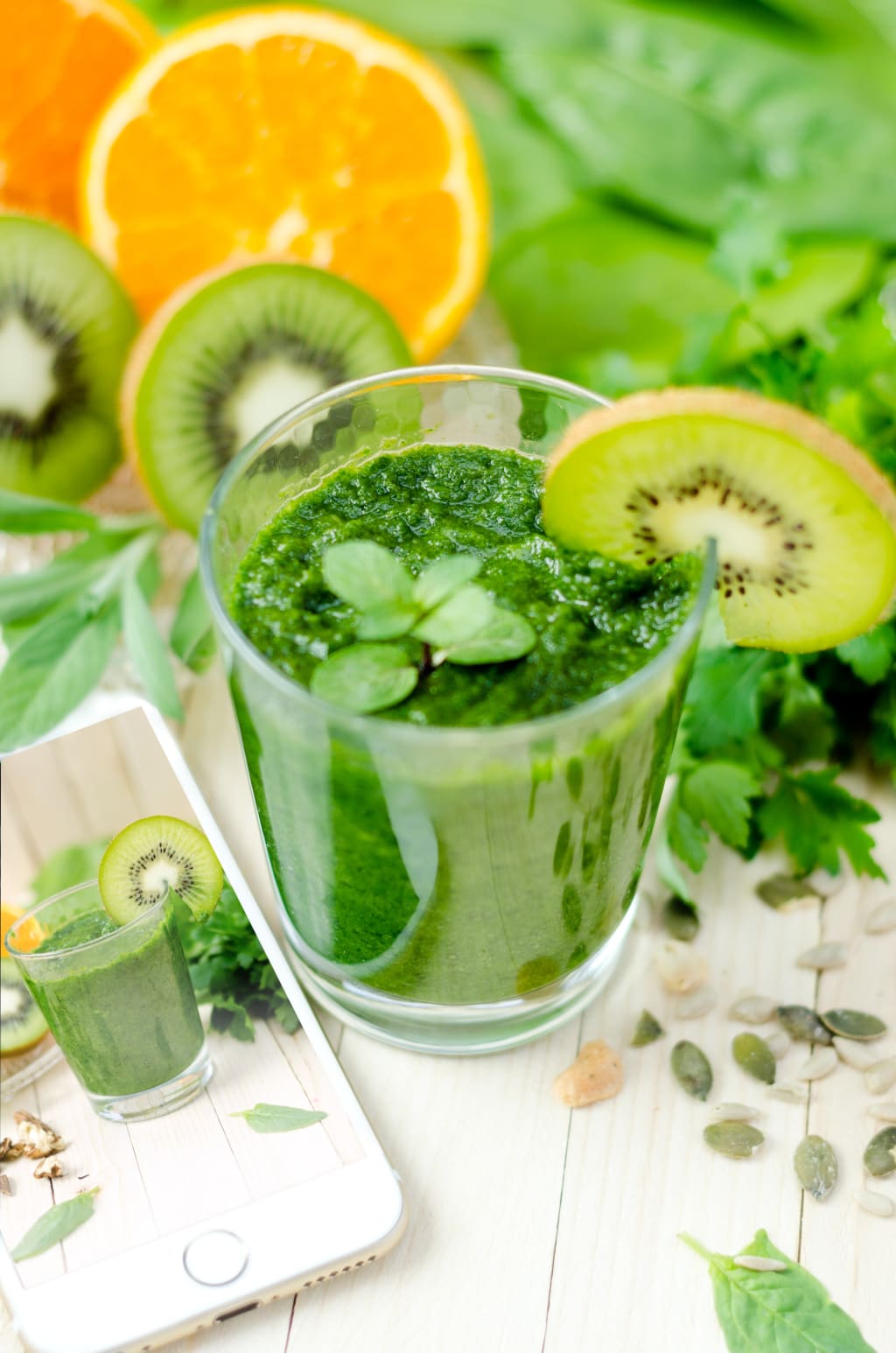How Juices Can Help You Reach Your Weight Loss Goals
Reap the benefits

If you're looking for a way to jumpstart your weight loss journey, you may have considered juicing. Juicing has become increasingly popular in recent years, and for good reason. Juicing is a great way to get the nutrients you need for weight loss without having to eat large amounts of food. In this blog article, we'll explore what juicing is and how it can help you reach your weight loss goals. We'll also look at different types of juices, their nutritional benefits, and how to incorporate them into your diet. Finally, we'll discuss potential side effects and provide tips for juicing while dieting. So, let's get started!
What is juicing and why is it beneficial for weight loss?
Juicing is the process of extracting juice from fruits and vegetables, and it's a great way to get a concentrated dose of vitamins, minerals, and other nutrients. Juices are also a great way to get a lot of nutrients without having to eat large amounts of food. This is especially beneficial for those trying to lose weight, as it can help you reduce your overall calorie intake without sacrificing the nutrients your body needs.
In addition to helping you reduce your calorie intake, juicing can also help boost your metabolism. This is because juicing helps to break down the fiber in fruits and vegetables, which helps to increase your metabolic rate. As a result, your body will be able to burn more calories, which can help you reach your weight loss goals faster.
Finally, juicing can also help to flush out toxins from your body. This can be beneficial for those trying to lose weight, as toxins can affect your metabolism and slow down your weight loss progress. Juicing helps to flush out these toxins, which can help to speed up your weight loss.
Different types of juices for weight loss
There are many different types of juices that can help you reach your weight loss goals. Some of the most popular juices for weight loss include:
Green juices: Green juices are made with a variety of green vegetables, such as kale, spinach, and celery. These juices are packed with vitamins and minerals that can help to boost your metabolism and aid in weight loss.
Fruit juices: Fruit juices are made with a variety of fruits, such as oranges, apples, and strawberries. These juices are full of antioxidants, which can help to improve your overall health and aid in weight loss.
Vegetable juices: Vegetable juices are made with a variety of vegetables, such as carrots, beets, and cucumbers. These juices are full of fiber, which can help to keep you full for longer and aid in weight loss.
Click here to ake a quiz to find out what kind of juice could help you the most to lose weight
Benefits of juicing for weight loss
There are many benefits of juicing for weight loss. Some of the benefits include:
- Increased metabolism: Juicing can help to increase your metabolism, which can help you burn more calories and reach your weight loss goals faster.
- Reduced calorie intake: Juicing helps to reduce your overall calorie intake, which can help you lose weight more quickly.
- Improved digestion: Juicing helps to break down the fiber in the fruits and vegetables, which can help to improve your digestion and aid in weight loss.
- Flushing out toxins: Juicing helps to flush out toxins from your body, which can help to speed up your weight loss.
-Boosts energy: Juicing can help to boost your energy levels, which can help you stay motivated and on track with your weight loss goals.
How to incorporate juicing into your diet
Incorporating juices into your diet isn't as difficult as it may seem. Here are a few tips to help you incorporate juices into your diet:
Start slowly: Start by drinking one juice per day and gradually increase the amount of juice you drink.
Choose the right juice: Make sure to choose a juice that is low in sugar and high in nutrients.
Drink first thing in the morning: Drinking a juice first thing in the morning can help to kickstart your metabolism and get your day off to a healthy start.
Drink before meals: Drinking a juice before meals can help to reduce your appetite and keep you from overeating.
Drink after workouts: Drinking a juice after a workout can help to replenish your energy levels and replenish lost nutrients.
Nutritional information of juicing
It's important to note that juicing can be beneficial for weight loss, but it's important to understand the nutritional information of the juices you're drinking. Here are a few tips to help you understand the nutritional information of juicing:
Read the labels: Always read the labels on the juices you're drinking to make sure you're getting the proper nutrition.
Choose low-sugar juices: Look for juices that are low in sugar and high in nutrients.
Balance your juices: Try to balance your juices by including a variety of fruits and vegetables.
Don't overdo it: Don't overdo it on the juices, as too much can lead to an imbalance of nutrients.
Tips for juicing while dieting
If you're looking to lose weight, there are a few tips to keep in mind when juicing. Here are a few tips to help you juice while dieting:
Drink more water: Make sure to drink plenty of water in between juices to stay hydrated.
Eat healthy snacks: In between juices, make sure to eat healthy snacks to keep your energy levels up and your hunger at bay.
Don't replace meals: Juices are great for adding extra nutrients to your diet, but don't replace meals with juices.
Incorporate exercise: Exercise is an important part of any weight loss plan, so make sure to incorporate exercise into your routine.
Supplements needed when juicing
In addition to the potential side effects, it's important to note that certain supplements may be necessary when juicing. Some of the supplements you may need when juicing include:
Multivitamin: A multivitamin can help to ensure that you're getting the vitamins and minerals you need when juicing.
Omega-3s: Omega-3 fatty acids can help to reduce inflammation, so make sure to include a source of omega-3s in your diet.
Probiotics: Probiotics can help to improve your digestive health, so make sure to include a source of probiotics in your diet.
Fiber: Fiber can help to keep you full, so make sure to include a source of fiber in your diet.
Click here to ake a quiz to find out what kind of juice could help you the most to lose weight
Conclusion
Juicing is a great way to get the nutrients you need for weight loss without having to eat large amounts of food. Many different types of juices can help you reach your weight loss goals, and they come with many benefits, such as increased metabolism, reduced calorie intake, improved digestion, and flushing out toxins. It's important to note, however, that there are potential side effects of juicing and certain supplements may be necessary when juicing. So, if you're looking for a way to jumpstart your weight loss journey, consider incorporating juices into your diet.
If you’re looking to reap the benefits of juicing while dieting, click here to find out more!
About the Creator
Nicolas Dierynck
exercise science major and pro basketball player. Excited to share my knowledge to the world!





Comments
There are no comments for this story
Be the first to respond and start the conversation.